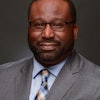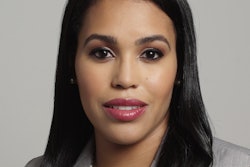Dr. Cecilia Elena Rouse, a Princeton University economist, will bring expertise in labor as it relates specifically to education issues when she joins President-elect Barack Obama’s Council of Economic Advisers.
Rouse is no stranger to Washington, having worked in the National Economic Council during the Clinton years, and thus isn’t expected to draw tough scrutiny when she goes before the Senate Committee on Banking, Housing, and Urban Affairs during her confirmation hearing today.
“Her specialty is the link between education and training and job market outcomes. I think she brings some reason and voice to the table about the linkage,” says Dr. William Spriggs, a professor and chair of the economics department at Howard University.
It may be noteworthy that Senate confirmation would make Rouse the first African-American to serve on the council since its creation in 1946. Other high-level nominations of African-Americans by President-elect Barack Obama have been notable because they have largely been in positions where Blacks are breaking new ground. “It’s an important appointment,” Spriggs says of Rouse’s breakthrough.
“By law, (the CEA is) supposed to be informing the President on policy to maintain full employment. That is (its) charge unlike the National Economic Council, which is a creature of the president and answers only to the president,” Spriggs notes.
Dr. Sheldon Danziger, the Henry J. Meyer Distinguished University Professor of Public Policy at the University of Michigan, predicts that Rouse would likely have a large scope of issues for which she would be responsible, including health care reform.
“She is just an excellent economist. She’s not ideological. (Rouse is) a careful researcher on her own work and deals a lot with education issues. But I would think she’ll be involved in – since the Council of Economic Advisers gets involved in all economic things – issues related to programs in Health and Human Services and the Department of Labor,” says Danziger, who co-edited The Price of Independence: The Economics of Early Adulthood with Rouse.
“I suspect that (Rouse) will be the person from the council who gets involved in health insurance so I would expect the other two members to be involved in issues related to macroeconomics, taxes and industry,” Danziger adds.
One significant question for many is how the CEA will be utilized, given that the council’s influence has varied from one administration to the next, according to Spriggs.
“The Clinton administration tended to use the CEA as the referee on what was smart economic policy … I don’t know how the Obama administration will use them,” says Spriggs, who served on an Obama transition team for the U.S. Department of Labor.
After earning a Ph.D. in economics from Harvard University, Rouse joined the Princeton faculty in 1992. Among the wide-ranging topics on which Rouse has published are the economic benefits of community college attendance, the effects of education inputs on student achievement, Florida’s school accountability and voucher programs, and discrimination in symphony orchestras. In 1998 and 1999, Rouse worked for the National Economic Council in the Clinton White House. Her sister, Dr. Carolyn Rouse, is an anthropology professor at Princeton.
Email the editor: [email protected]
Click here to post and read comments
© Copyright 2005 by DiverseEducation.com



















